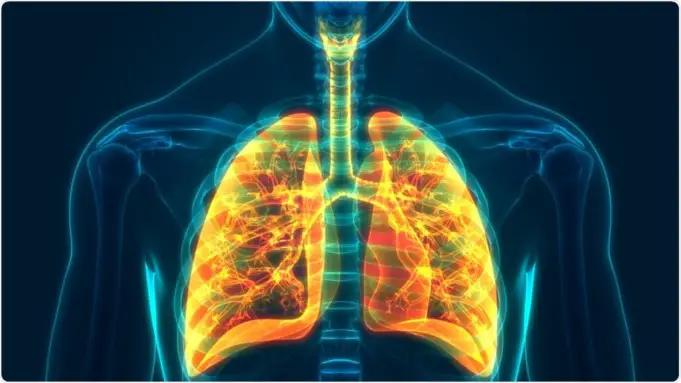Covid-19 is a problem that has become public knowledge as it has affected a good percentage of the world’s population. The lungs are known to be ground zero for COVID-19, and that makes underlying respiratory problems a serious concern.
With the famouschronic obstructive pulmonary disease (COPD) specifically, there are irreversible changes happen occur in the lungs’ small airways and alveoli — the small air sacs at the rare end of the airway branches where clean air (oxygen) is delivered to the human body and the waste product, which is carbon dioxide, is let out.
Due to these changes, the can be an obvious decrease in the number of air sacs, potentially cause a worse effect of the coronavirus.
In very severe COVID-19 cases, a patchy, diffuse pneumonia will develop, causing a person’s air sacs to become filled with fluid, preventing oxygen from finding its way into the body. “If already, there is a decreased number of air sacs as a result of COPD, the problem becomes compounded, thus increasing the chance for respiratory failure and causing a need for assisted ventilation with a ventilator,” noted Neil Schachter, M.D., who is a professor that specializes in pulmonary medicine at the Icahn School of Medicine, Mount Sinai Health System, New York City.
According to Christopher Worsham, M.D, another pulmonologist and Intensive care physician, “One reason why there are concerns about patients who have COPD during this pandemic is that if they already have issues with low oxygen, the virus can cause them to become worse, potentially dropping oxygen to life-threateningly low levels,”
A new study has helped to quantify the added risk of COPD for Covid-19 patients
A recent review of studies in the journal Respiratory Medicine revealed that patients of COPD have more than a fivefold increased risk for suffering severe COVID infections. We are talking about the kind of complications that lands people in the Intensive Care Unit, and on a ventilator.
Patients of COPD also tend to be older and suffer from other conditions that increase the risk of their health quickly deteriorating when the covid-19 strikes.
Also note worthy is that COPD patients may also stand a greater risk for getting the covid-19 disease in the first place, says Schachter. Cigarette smoking, which usually precedes COPD, and the condition known as COPD itself have been identified to increase up the number of ACE (angiotensin-converting enzyme) receptors that the COVID virus attaches to before it penetrates.
Steps to take to protect yourself if you have COPD
For the above reasons, experts have said that COPD patients need to be most diligent about preventing all forms of exposure to covid-1.
During this time, it is most important to maintain physical distancing, pay attention to proper hand hygiene, and always wear a face mask.
It’s also more important than ever to manage your condition. “This includes vaccination against flu and pneumococcus, and treatment of the airway obstruction with appropriate bronchodilator and anti-inflammatory medications, and oxygen use as indicated by your physician,” Schachter says.
If your notice that your COPD symptoms become worse, get help immediately.
According to Benjamin J. Seides, M.D., director of interventional pulmonology at Northwestern Medicine Central DuPage Hospital says that “Some people, out of a deep fear of contracting covid-19, are ignoring or undermining symptoms and fast pushing back at the thought of coming in and seeking proper in-person medical attention when they need it the most”. Benjamin J. Seides, M.D. added that “We’ve recorded a rise in patients who are presenting non-COVID-related medical problems who have had to wait a lot longer than they would on normal grounds to come to the hospital, thus making their medical problems less manageable.”
We advise that If you develop any flu-like symptoms, have difficulty breathing, or you notice a purplish or bluish color in your fingertips or lips, call your doctor as soon as you can. The same advice also goes to people who normally use oxygen at home and begin to need more oxygen than normal.
Ensure that you don’t rely on over-the-counter pulse oximeters — devices that will have to go over the fingertips in order to measure oxygen levels — if you want to gauge your lung health.
We do not encourage the use of these as they can be quite inaccurate and may provide some false reassurance. If you are wondering what the best thing to do when it comes to breathing or oxygen concerns is, the answer is to call the doctor’s office immediately.
If, unfortunately, you end up with COVID-19, keep in mind that though we are aware of the severity of the condition, most patients, including people with COPD, have a chance at survival.
We hope that you found this article helpful. Kindly leave a comment below.













